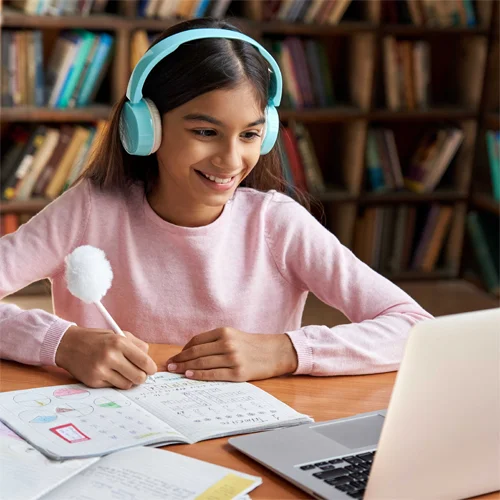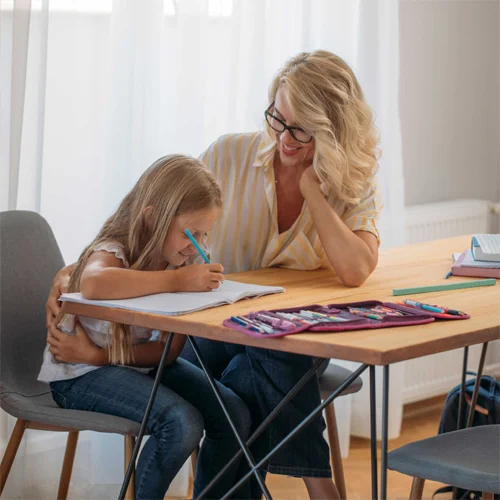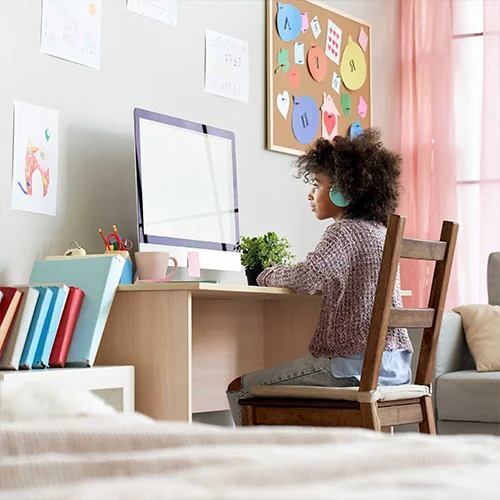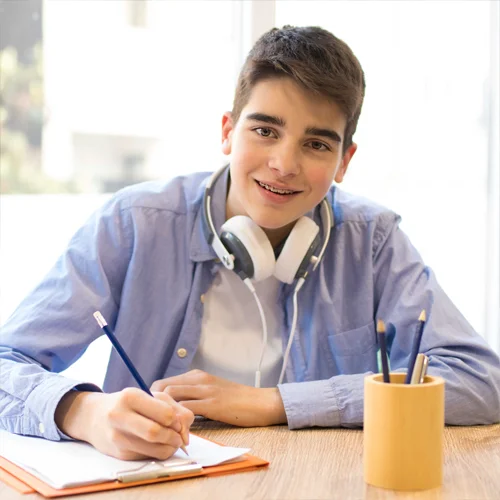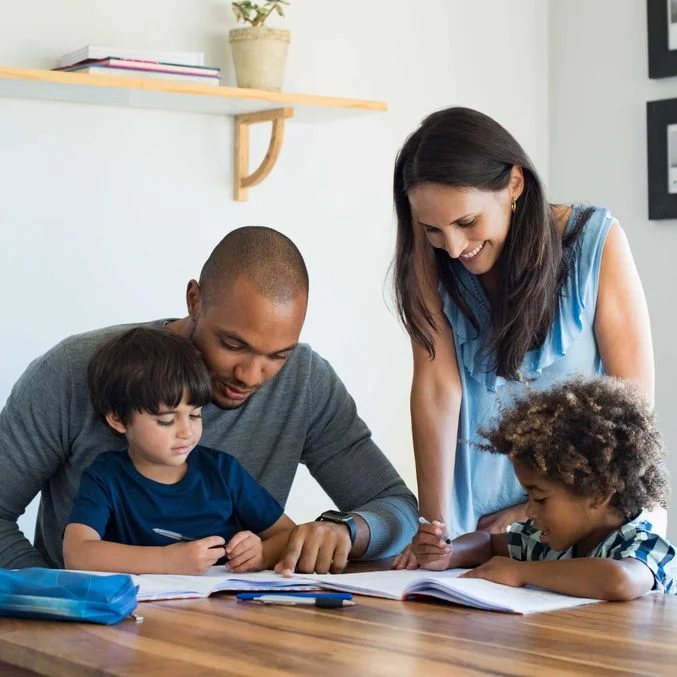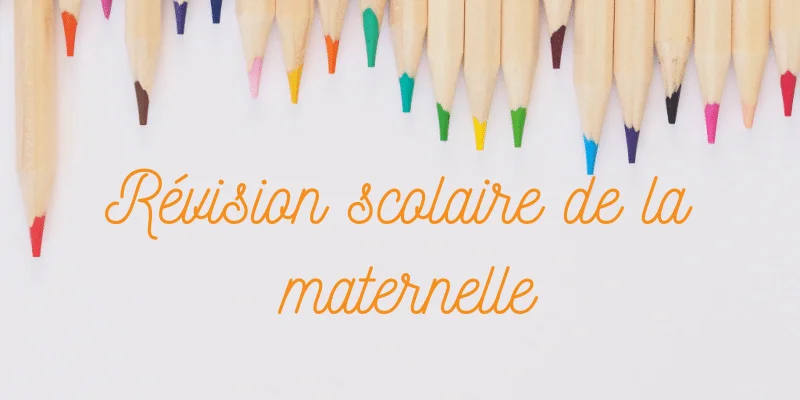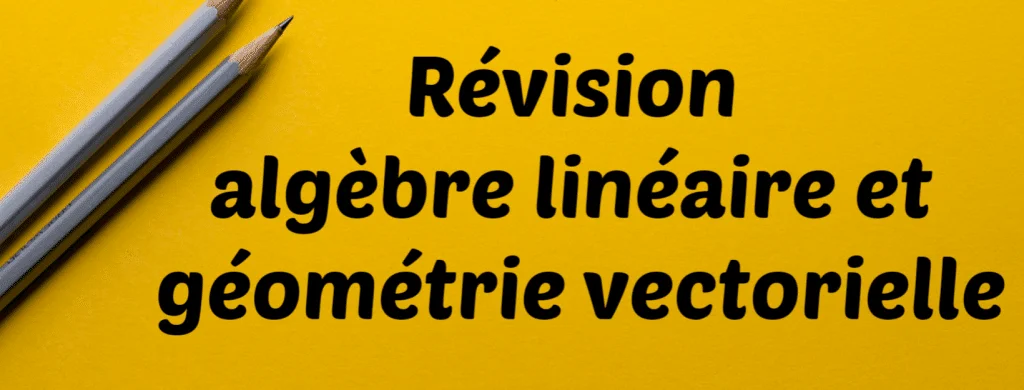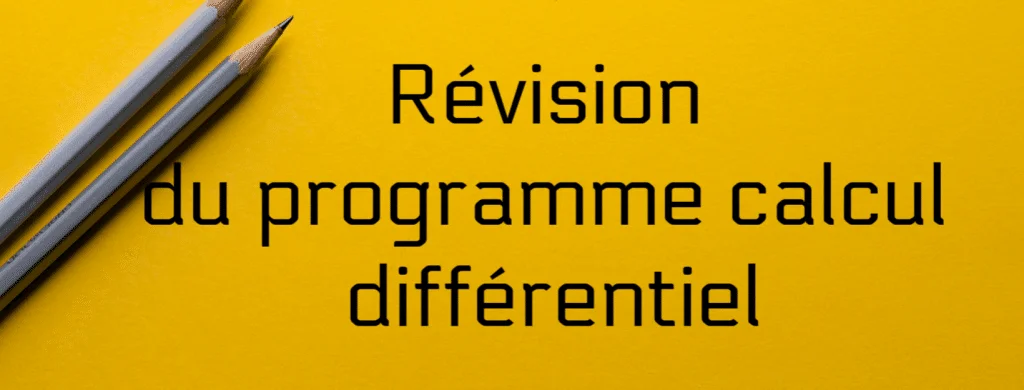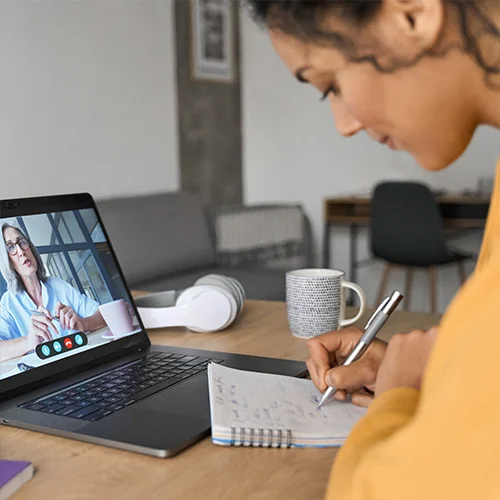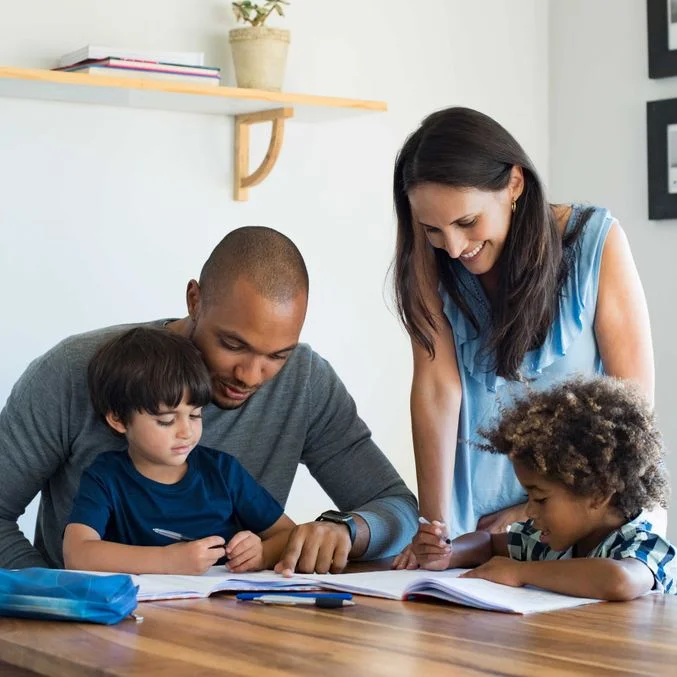Kindergarten
Kindergarten is certainly a milestone in the life of a child and his family. It’s the first time he sets foot in a school, the first time he boards a bus – in short, it’s a lot of firsts. As a parent or teacher, you certainly want to develop the 6 basic kindergarten skills in your youngster. It’s in these skills that your learner will develop essential knowledge and carry out his or her learning. This kindergarten review page provides you with valuable resources. Everything is in line with the Quebec Education Program, available on the Ministère de l’Éducation et de l’Enseignement supérieur website[1].
The young person, his world of play and his life experiences
To learn with a child of this age, it’s essential to integrate play into every learning experience. Children learn through play, and it is from this that they build their experiences. The following six components should be developed in kindergarten.
1- Act effectively in different sensory and motor contexts
To begin with, in this skill your kindergarten child should be able to :
- Adapt actions to environment
- Comply with safety rules (knows what actions promote safety)
- Perform various fine-motor and gross-motor actions
2- Asserting your personality
In fact, this skill helps build children’s self-esteem and contributes to their emotional development.
The essential skills are as follows:
- Express needs and find ways to meet them
- Sharing tastes, interests, feelings and emotions with others
- Develop self-confidence: become aware of strengths and limitations, express ideas and assertiveness
- Demonstrate autonomy: select materials, make choices for oneself, set goals and take initiative
3- Interact harmoniously with others
This skill is linked to children’s social development. Their interactions with others help them develop their understanding of the world, their interests and their tastes.
The young person learns to :
- Taking an interest in others: noticing similarities and differences with others, showing openness to others and making contact with a variety of people.
- Participates in group life: expresses ideas, listens to others, helps set group rules and assumes responsibility.
- Applies a conflict-resolution approach: recognizes a conflict situation, recounts the facts, seeks solutions and evaluates his or her solutions.
What to watch : Tips for conflict resolution
4- Communicate using language resources
Language development is a key component of this skill. Language is an essential tool for your child’s cognitive development.
Here’s what you can learn with him:
- Demonstrates interest in communication:
- Engages in conversation, respects the topic of conversation.
- Gets the meaning of a message: pays attention to the message, expresses understanding of the information received, makes oral and written connections
- Produces a message: organizes ideas, uses appropriate vocabulary, explores language by playing with words
Listen to: songs for kindergarteners!
5- Building your understanding of the world
To continue, it is closely linked to the child’s cognitive development. Through their interactions, children develop strategies and acquire knowledge. Games are a great help in developing this skill. They observe, anticipate and experiment in a pleasant context.
Schoolchildren must :
- Demonstrate interest and curiosity in the arts, history, geography, mathematics, science and technology: they can make connections with their daily lives, and are curious, interested and eager to learn.
- Test their thinking in different contexts: they observe, manipulate objects and ask questions. Anticipates and verifies predictions
- Organize information: express what they know. Seeks, selects and exchanges information.
- Telling about what he/she has learned: able to describe his/her process
6- Completing an activity or project
- Commits to the project or activity using his/her own resources: shows interest, talks about what he/she knows and seeks information to carry out the project.
- Demonstrates tenacity in carrying out the project or activity.
- Demonstrates curiosity and takes time and space into account.
- Demonstrates satisfaction with the project or activity: presents his or her presentation and is able to describe his or her approach
- Communicate the results of your project: express your difficulties, your appreciation and what you’ve learned.
Here is a list of strategies for developing essential kindergarten skills
Motor and psychomotor strategies
- Find your place in space and time
- Practice activities to strengthen muscle tone, make movement more flexible, build endurance
- Use gesture and rhythm to communicate
- Use relaxation to reduce stress
- Adapt appropriate use of objects, tools and materials
Affective and social strategies
- Control impulsiveness
- Pay attention
- Manage stress
- Maintain concentration
- Positive self-talk (“I am capable of…”)
- Find ways to overcome difficulties and conflicts
Cognitive and metacognitive strategies
- Observe
- Explore
- Experiment
- Organize
- Plan
- Classify
Finally, here’s a page on the SOSteacher website to make homework time easier for your children.
Find out more and get better equipped
Essential skills for primary school :
- School revison for grade 1
- School revison for grade 2
- School revison for grade 3
- School revison for grade 4
- School revison for grade 5
- School revison for grade 6
- Essential knowledge in English as a second language at primary level
- Teach it Forward
- Become an elementary school tutor
- Find a math tutor
- Find a tutor in French or French as a second language
- Find an English tutor
- Ministry of Education spelling list
[1] Ministère de l’Éducation et de l’Enseignement supérieur (MEES). Quebec Education Program.http://www.education.gouv.qc.ca/fileadmin/site_web/documents/education/jeunes/pfeq/PFEQ_programme-prescolaire.pdf

